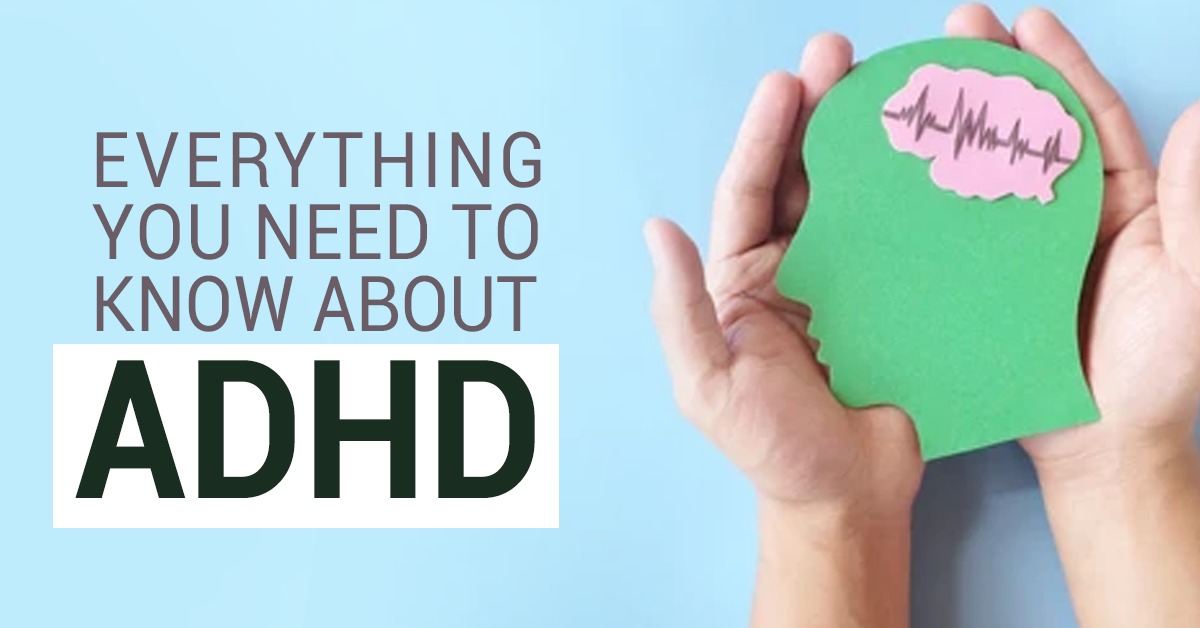Everything you need To Know about ADHD
Attention deficit hyperactivity disorder (ADHD) is a mental health condition characterized by impulsive and excessive hyperactivity. It is also possible the people with ADHD may also struggle to focus their attention on a single task or to sit still for extended periods of time.
Many people experience inattention and energy fluctuations. When compared to people who do not have ADHD, this occurs more frequently and to a greater extent. It can have a significant impact on their studies, jobs, and personal lives. ADHD can affect both adults and children & can also be diagnosed in an individual with an ADHD Assessment. Some people also opt for a Private ADHD Assessment.
Symptoms of ADHD
ADHD is associated with a wide variety of behaviors. Some of the most common ones are discussed below in the following points:
ADHD symptoms and signs can vary depending on the aspect of the disorder, such as hyperactivity, impulsivity, or difficulty focusing. A person who is hyperactive and impulsive may:
Types of ADHD
The American Psychological Association (APA) has classified ADHD into three types in order to improve consistency in diagnosis. These people are primarily inattentive, primarily hyperactive-impulsive, or a combination of the two.
Predominantly inattentive
People with this type of ADHD, as the name implies, have extreme difficulty focusing, finishing tasks, and following instructions. Experts also believe that many children with the inattentive type of ADHD may go undiagnosed because they do not disrupt the classroom.
Predominantly hyperactive-impulsive type
This type of ADHD is characterized by hyperactivity and impulsivity. Some common symptoms may include:
Although inattention is less of an issue with this type of ADHD, people with hyperactive-impulsive ADHD may still struggle to focus on tasks.
Combined hyperactive-impulsive and inattentive type
This is the most typical form of ADHD. Individuals with this type of ADHD exhibit both inattentive and hyperactive symptoms. These characteristics include an inability to pay attention, impulsiveness, and above-average levels of activity and energy. The type of ADHD you or your child has will determine how you or your child is treated. Because the type you have can change over time, so can your treatment.
What causes ADHD?
Despite how common ADHD is, doctors and researchers are still unsure what causes it. It is thought to have neurological origins. Genetics may also be involved. Some ADHD specialists believe that a decrease in dopamine is a factor in ADHD. Dopamine is a chemical in the brain that aids in signal transmission from one nerve to another. It aids in the elicitation of emotional responses and movements. Others believe it is due to a structural difference in the brain.
According to the findings, people with ADHD have less grey matter volume. Gray matter includes brain areas that aid in:
ADHD diagnosis and testing
A single test cannot determine whether you or your child has ADHD. A doctor will assess any symptoms you or your child have had in the previous 6 months to make a diagnosis. Your doctor will most likely collect information from teachers or family members and may review symptoms using checklists and rating scales. They will also perform a physical exam to rule out any other health issues.
If you suspect you or your child has ADHD, consult a doctor about getting tested. You can also consult with your child's school counselor. Schools routinely screen students for conditions that may be affecting their academic performance. If you are looking for a Good ADHD specialist in your area then simply search for ADHD Specialists near me on Google, and a list of ADHD specialists in your area will be in front of you in no time.
ADHD treatment
Treatment for ADHD typically includes some behavioral therapies, medication, or both.
Psychotherapy and talk therapy are two types of therapy. You or your child will discuss how ADHD affects your life and how to manage it in talk therapy. Behavioral therapy is another type of therapy. This therapy can teach you or your child how to monitor and manage their own behavior.
Medication can also be very beneficial if you have ADHD. ADHD medications are intended to alter brain chemicals in such a way that you can better control your impulses and actions.
Tips for coping with ADHD
A consistent schedule with structure and regular expectations may be beneficial if you or your child has ADHD. Adults can benefit from making lists, keeping a calendar, and setting reminders to help them stay organized. It can be beneficial for children to concentrate on writing down homework assignments and keeping everyday items, such as toys and backpacks, in designated areas.
Untreated ADHD can have serious consequences for both children and adults. It can have an impact on studies, work, and relationships. Treatment is required to reduce the consequences of the condition. Your doctor can assist you in developing a treatment plan that will help you manage your symptoms and live well with ADHD.
